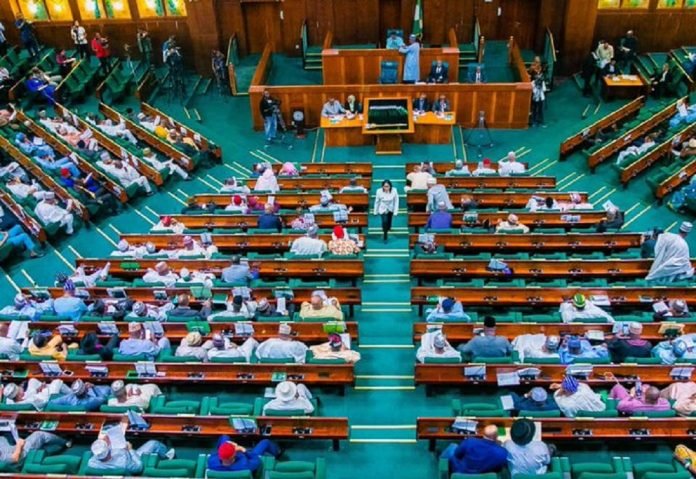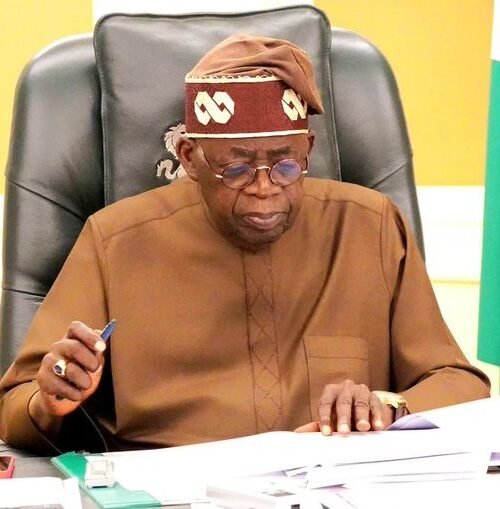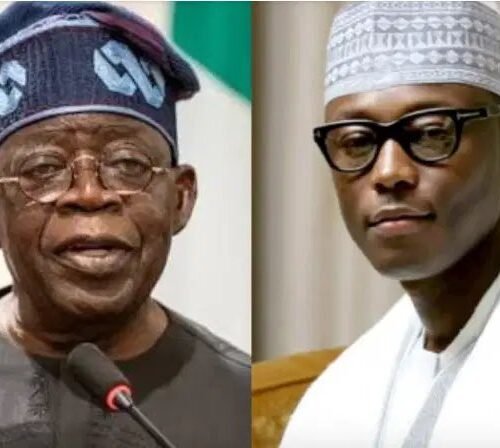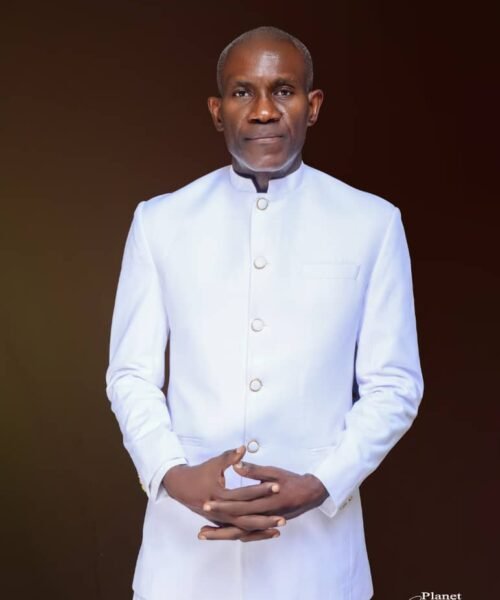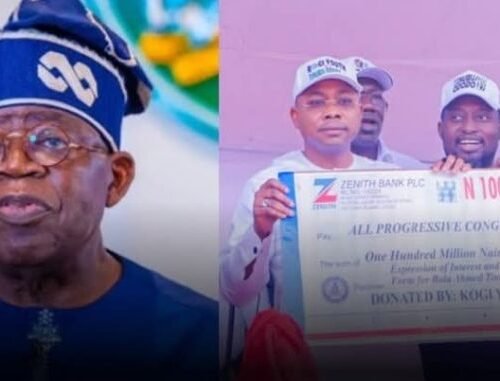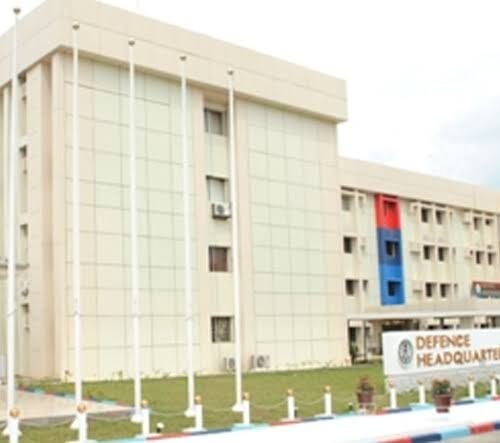Reps Okay MTEF, N7.8tn Borrowing Plans For 2024
The House of Representatives, on Tuesday, approved the 2024-2026 Medium Term Expenditure Framework and Fiscal Strategy Paper (MTEF/FSP), with a borrowing plan of N7.8 trillion for 2024.
For 2024, 2025, and 2026, the House set benchmark oil prices of $73.96, $73.76, and $69.90 per barrel, respectively.
Also, the House set benchmark daily crude oil production levels of 1.78 Mbps, 1.80 Mbps, and 1.81 Mbps.
As agreed by the Green Chamber for 2024–2026, the executive’s proposed exchange rate is N700, N665.61, and N669.79 to $1.
The inflation rates of 21.40 per cent in 2024, 20.30 per cent in 2025, and 18.60 per cent in 2026 were proposed by the lawmakers even as they proposed Gross Domestic Product growth rates of 3.76 per cent, 4.22 per cent and 4.78 per cent, respectively.
The Federal Government recommended National spending of N26 trillion, with N16.9 trillion in retained revenue, N9 trn budget deficit, N7.8 trn in new borrowings, N1.3 trn for statutory transfers, N8.2 trillion in debt service and N1.27 trillion in pension, gratuity, and retiree benefits.
Nigeria’s inflation rate in October was 27.33 per cent; however, Fitch projected that the rate would moderate to 21 per cent in 2024.
The Nigeria Economic Society (NES) has called for the strengthening of collaboration between the group and the Central Bank of Nigeria (CBN) to support the reshaping of the Nigerian economy to boost growth and development.
The president of NES, Prof. Adeola Adenikinju made the call during a courtesy visit to the Governor of the Central Bank of Nigeria, Dr. Olayemi Cardoso on Tuesday, 14 November.
While lauding some of the policy initiatives of the new Central Bank Governor and his management team, Prof. Adenikinju called for the reconfiguration of the nation’s monetary architecture to align with the uniqueness of the Nigerian economic ecosystem.
“The NES lauds the positions and actions that the CBN has taken in recent times. Your decision that the CBN under your watch would stick to its primary responsibility of monetary and price stability is laudable.
“You have also indicated that there would be compliance with Statutory Laws and Regulations, and that the Bank would invest more in human capacity development.
“You have also indicated that you would work closely with your fiscal counterparts so as to promote a harmonious monetary and fiscal coordination.
“The steps taken by the CBN towards achieving exchange rate unification, and paying down on FX liabilities are steps in the right direction. Mr. Governor Sir, for us at NES, we are committed to partnering with the CBN to deliver a strong post-Covid 19 and post-oil Nigerian economy.
“In pursuing an effective monetary policy through the market, you should remember Keynes warnings that “When the facts change, I change my mind”.
He warned about the possibility of markets not being moved by reason but some animal spirits, implying that monetary policy should not just surrender to either the market or the government, given the well-known path to the failure of both in achieving optimal resource allocation.
“The monetary policy architecture should be configured to fit the uniqueness and urgent imperatives of the Nigerian economic ecosystem to leapfrog it unto a path of sustainable economic growth and development.
“In this onerous national task, the CBN should always count on us as dependable partners ready to give our hand of friendship and needed support when called upon,” he added.
While advocating for new areas of collaboration, the NES President emphasised the need to strengthen economic research and policy reform collaborations between CBN and the NES in line with with global best practices.
“On Collaborative research, we think there are two key areas of need that NES can play an important role in helping the bank deliver on its mandates. First, although the bank has great capacity and resources for research, assessment studies of the effectiveness of bank’s own policies and interventions are best undertaken by independent reputable external entities, in line with international best practices, and are regarded more credible.
“Secondly, collaboration with NES can also focus specifically on advocacy, focusing on certain specific issues that the bank may choose from time to time, hence complementing the bank’s policy communication”.
Responding, the Governor of Central Bank of Nigeria, Dr Olayemi Cardoso appreciated the NES Council members for the courtesy visit and lauded their continued policy advocacy in the Nigerian economy.
While promising collaboration with the NES as done by his predecessors, the new CBN Governor assured of his desire to take it a notch further for the mutually beneficial gains for the overall economic development and policy formulation in Nigeria.
He reaffirmed the Banks commitment to stick with the price stability goal of CBN as its overall objective and harped on the need for the NES to continue to train the up-coming economists in the country through well targeted capacity building programmes for an inclusive growth, while also supporting gender-equality.
In attendance were President: Prof. Adeola Adenikinju , Vice Presidents: Prof. Stella Madueme, National Secretary: Dr. Frank I. Ogbeide, Associate Editors: Prof. Mohammed Yelwa; Business Manager: Dr. Idris Mohammed Idris, Publicity Secretary: Dr. Oluwafemi Mathew Adeboje, Ex-Officio: Dr. Rislanudeen Muhammad , Ex NES President —Prof. Sarah Anyanwu
Also present was the host and CBN Governor, Dr Olayemi Cardoso, Dr Muhammad Abdullahi Dattijo, Deputy Governor (Economic Policy), Dr. Hassan Mahmud, Director, Monetary Policy Department and Philip Ndanusa Wondi, the Senior Special Assistant to the Governor.
The Association of Issuing Houses of Nigeria (AIHN), said that the federal government and private companies raised N3.44 trillion through Corporate Bonds and Commercial Paper (CPs) issuance in two years.
The past President AIHN, Ike Chioke, disclosed this yesterday at the group’s Annual General Meeting (AGM) and presentation of the 2022 annual report in Lagos.
He said: “Capital raising activities in the local environment consolidated on the successes recorded in 2021. Notably, 333 deals valued at about N3.44 trillion have been recorded over the last two years in the local debt market. This largely reflects the activities of corporates in the bonds and commercial paper issuance space while also considering states sponsored instruments”.
Presenting the group’s financial position as at December 31, 2022, he said its revenue increased by 31 per cent over the past three years.
According to him, the group’s total assets stood at N416.14 million in 2022, higher than N361.05 million it recorded in the 2021 financial year.
He said it also recorded a total income of N85.41 million in 2022, higher than N64.78 million it generated in 2021. Also, the group achieved income surplus of N53.98 million in 2022, higher than N36.33 million it posted in 2021 financial year.
Chioke, said the growth underscores its commitment to fiscal responsibility and efficient management of resources.
He said Seed and Series funding continue to report high deal volume as technology-based start-ups intensify efforts to achieve business expansion.
“Hence, traditional investment banks must innovate to survive and win market share in the growing Seed and Series funding space. Attracting night talent in the investment banking sector is however becoming increasingly difficult owing to competition from the financial technology companies and the increased emigration wave,” he added.
To support future growth, he advised investment banks to be innovative and consider increasing participation in the technology revolution that is shaping sectors around the globe.
The AIHN also announced the appointment of Kemi Awodein as the new President picking up the baton from Chioke.
Other Executive Council Members include Dr. Gabdebo Adenrele, Vice President; Alhassan Gwarzo, Secretary of Finance and Onyebuchim Obiyemi, Secretary Administration.
In her acceptance speech, Awodein, said she will do her best to justify the confidence reposed on her and other executive committee members by the group.
The amount of dollars traded on the Investor & Exporter forex window rose by 46.69 per cent to $123.25m on Monday.
On Friday, the turnover of dollars in the official market was $84.02m. This increased to $123.25m on Monday. Despite this, the naira depreciated by 1.96 per cent to N795.41/$ as of the close of trading on Monday after closing trading at N780.14/$ on Friday according to data from FMDQ OTC Securities Exchange. On Monday, trading opened at N780.83/$ before closing at N795.41/$.
However, during trading the naira traded for as high as N1099/$ and as low as N701/$. Meanwhile, on the parallel market, the naira continued its fall, depreciating by 4.55 per cent to N1,150/$ from the N1,100/$ it traded for on Friday.
A Bureau de Change Operator who only gave his name as Awolu told The PUNCH, “I am buying at N1,110/$ but selling at N1,150/$.” Another trader, Kadir, added, “It is N1,150/$ today if you want to sell. If you want to buy it is N1,170/$.
The naira has continued to depreciate following the Central Bank of Nigeria’s order to allow the free flow of the country’s exchange rate in June on the official Investor & Exporter forex window. Before this move, the naira traded at the official market on the FMDQ at 471.67/$ and at the parallel market at 765/$ in June.
However, according to new information from Economist Intelligence, the naira is set to close 2023 at N810/$ on the official market. It disclosed this in its recently released country report. It stated that after floating the naira in June, the apex bank has since reverted to guiding the exchange rate by limiting access to foreign exchange sales for banks and other dealers that quote prices outside a preferred rate.
The EIU noted that this unsupportive monetary policy would continue to put pressure on the naira. It said, “However, other factors undermining the naira, such as deeply negative short-term real interest rates, require an orthodox monetary policy that the authorities have not demonstrated enough appetite for. We therefore do not expect a currency float to succeed over 2024-28, although it seems likely that the fuel subsidy will end when the Dangote refinery is able to replace imports, from late 2024 onwards.”

SPECIAL ADVERT PROMO FOR 2023 IGBA-OTOMU, IGBA-UCHE, IGBA-EKPE, IZU-UCHE, IGBOTONMA AND IZA-AFA
This is a special promo designed for our brothers, sisters, mothers, fathers etc who are involved in the above events and others not mentioned during this Xmas period to reach out and showcase their event to the entire world at highly subsidized rate.
PACKAGE:
First Leg: Full page Promotional package showcasing your Invitation Card, Banner/Flex, 3 different Photographs and brief of the coming event. Also your picture/Name will be the headline News in AttNews blog(Pre-Event)
Second Leg: Full Page Promotional package of the event showcasing 5 different photographs. Also your picture/Name will be the headline news in AttNews blog(Post-Event).
Rate: N20,000 Only For Both Pre and Post Events. (Rate is only Applicable during the Promotional Period)
For further inquiries, contact the undersigned:
Dr. Uduma Nnate (Publisher)
08132260609
Chief Imo Ukwa(Advert Consultant) 08063779938

